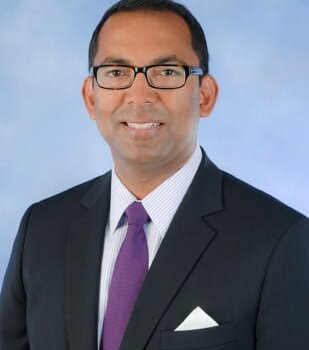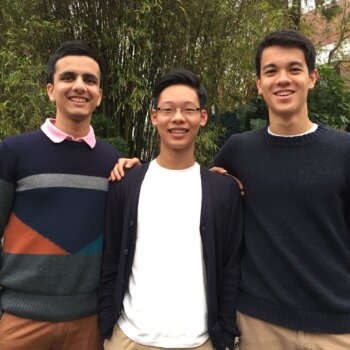Awarded Forbes 30 under 30 in Consumer Technology and South Florida’s Top Working Professional by the Sun Sentinel, Sergey is always seeking out ways to innovate industries. He co-founded two IT projects prior to JetSmarter: an online chat system for website customer service and a distance-learning platform for Russian speaking educational institutions. He served as a board advisor to a private jet operator based in South Florida who at the time had the world’s largest on-demand Gulfstream charter fleet. Has traveled privately for business and leisure with friends and family prior to JetSmarter, and really hated the brick and mortar approach to booking charter. Frustrated with this experience, he began to notice mobile marketplaces were becoming popular, and decided this is the way private aircraft should be booked. And bingo the idea for JetSmarter was born…
So Sergey got his development team together from previous projects, invested his own capital and started planning the creation of an app for people to use to order flights with top rated private jet operators.
They built the first beta-version of the JetSmarter App in August 2012, which was used by a closed group of people. Once he realized they were on to something, he decided to turn this into a full-fledged business. After raising more money and collaborated with hundreds of vendors and partners, the JetSmarter App was officially born in March 2013, making Sergey the Founder and CEO of one of the world’s most innovative technologies to date.
Sergey’s vision along with his recruitment of an expert technology, management and advisory team, who are credited with executing successful projects for NASA, Nokia, Microsoft, Mercedes Benz, BMW and a combined experience of over 100 years in private air travel, gave birth to the groundbreaking app that JetSmarter is today.
In your own words what is JetSmarter?
JetSmarter, the world’s largest mobile marketplace for private jets, has created a new class of air travel that is able to offer both custom charters and unused seats across thousands of flights. By fundamentally rewiring the marketplace, JetSmarter has lowered the entry cost into the private aviation market, making it more available to travelers around the world, and a true disruptor in the space. Its technology and efficient platform – driven by algorithms, artificial intelligence and mobile distribution – optimizes inventory to drive down prices, create availability, and gives JetSmarter the resources to continue to grow U.S. and globally.
How did you come up with the idea of JetSmarter?
My background is in tech start-ups, and in 2009 I began flying private after selling my first IT Company and quickly came to realize that the private jet industry was very archaic; its brick and mortar process of picking up the phone, waiting hours and speaking to numerous different people in order to charter a jet was outdated and inconvenient – I figured there had to be an easier way, which is what first sparked my interest in starting a company like JetSmarter.
Did you encounter any particular difficulties during startup?
Starting out, I was unsure of how we could infiltrate our target market and how accessible we could make this service, but in 2012, I spoke to the carriers I had established relationships with and discussed how large of an impact an app to charter a private plane would have on the industry. In August 2012, I made it a reality and created the beta version of JetSmarter, sharing it with an exclusive group of industry experts and frequent private jet users. In March 2013, JetSmarter launched globally.
What kind of feedback did you get for JetSmarter so far?
Our members really love our product, and we’ve seen a significant growth since the launch in March 2013, growing 15-20% each month. To date, JetSmarter has had over 800,000+ downloads, so we expect that growth to continue exponentially.
What is your strategy against your competition?
We offer a unique business model unlike any other private jet venture. JetSmarter is the only private travel service company to operate by way of an innovative app technology. Our aim is to make flying private something accessible to the masses not just a privileged 1 percent. We offer 4,000 free flights each month to our members who have access to these flights daily.
Within the app, JetSmarter’s full range of services are available in three categories JetShuttle, JetCharter and JetDeals, allowing members to quickly and easily find a flight that best suits their needs. The breakdown of each service is as follows:
a. JetShuttle: Shared private jet flights; members can search for and book a seat on an already scheduled route
b. JetCharter: Members can customize and create their own charter flights. Within this option, they can book an entire jet to themselves, or create a “shared charter” flight, which allows them to purchase individual seats on a flight (between shuttle cities). This flight is then opened up into the JetShuttle section of the app, therefore creating a shared flight that is available for other members
c. JetDeals: Exclusive one-way flights on private jets, where members can book a flight to a new destination city daily
What can you tell us about the industry?
My outlook for the private jet industry is that mass travel between 100 – 1000 miles will all be private air travel in the future, and large airline style commercial aviation will be a thing of the past in 20 years. I also believe that operational costs will significantly decrease due to hybrid electric aircraft, and with proper sharing technologies (JetSmarter app) private aviation will be priced at a level accessible to the masses.
What is the future of the industry?
We plan to continue our global expansion, and we’re currently focusing on expanding in the countries where there is enough supply to satisfy demand, and are continuing to partner with carriers across the globe, to offer users more inventory daily. With JetSmarter, we’ve not only made private jet travel more accessible for consumers by lowering entry costs, but its fundamentally rewired the marketplace, and reinvented an industry for the on-demand economy. Consumers like the ease of being able to book on-demand from the palm of their hand, so I believe these types of models will only continue to grow in the future.
Was there anything that disappointed you initially?
At first, I was unsure of how we could infiltrate our target market and how accessible we could make this service, but as an entrepreneur, I try not to look at any initial setbacks as a negative. I see them as difficulties that I have encountered, which has made my company stronger, and what it is today.
What is your definition of success?
Internal satisfaction, and knowing that you do what you love.
Why did you decide to become an entrepreneur?
I have always been an innovator and entrepreneur. I co-founded two IT projects prior to JetSmarter: an online chat system for website customer service, and a distance-learning platform for Russian speaking educational institutions. I also served as a board advisor to a private jet operator based in South Florida, who at the time had the world’s largest on-demand Gulfstream charter fleet.
In your opinion, what are the keys to entrepreneurial success?
If you push yourself to the limit, and work harder than everyone else, you will succeed. Never stop believing in yourself, and always know you can make it to the finish line.
Any parting words of wisdom for entrepreneurs out there from your personal experience?
Don’t wait – just do. Have faith in your outcome and don’t stop believing when things get hard.
Connect
Website – https://jetsmarter.com/
LinkedIn – https://www.linkedin.com/in/spetrossov
Facebook – https://www.facebook.com/SergeyPetrossov/
Twitter – https://twitter.com/spetrossov
Instagram – https://www.instagram.com/spetrossov/






























